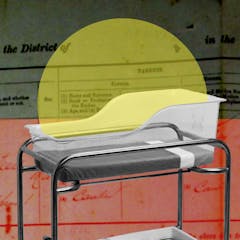
Artículos sobre Australian history
Mostrando 1 - 20 de 368 artículos

Born into a wealthy family, John Büsst left Melbourne for north Queensland where he campaigned against planned oil and gas exploration of the reef in the 1960s. His story was little known, until now.

Charming and irreverent as they were, The Beatles themselves were only part of the reason the tour was so memorable.

There is a glaring absence of Indigenous people and culture at the heart of the Mad Max films.

Along with British and Irish convicts, 627 free men, women and children were transported to the 19th-century penal colonies of Van Diemen’s Land. Their stories, mostly forgotten, are moving.

Many First Nations celebrate the time when boats from across the Indonesian archipelago were not intercepted by Australian authorities.

Films about Australia’s efforts in WWI continue to exclude an Aboriginal presence – denying all of us access to their important stories.

Some of these men went from being indentured pearl divers to soldiers in Borneo. Other fled their home country as teenagers to earn money.

Truth-telling is vital to building a greater understanding between First Nations and non-Indigenous Australians. New research offers insights into how this can be done.

Indigenous people have long spoken about coercive practices of officials and experts around birth control, as late as the 1960s. Now historians are finding evidence in the government’s own records.

A national anthem is supposed to reinforce a nation’s identity. Are we fine with singing Advance Australia Fair for another 50 years?

The grave of Andrew George Scott, famously known as Captain Moonlite, may not bear the significance attributed to it in a recent proposal by the Heritage Council of NSW.

Today, the flat white is enjoyed by people the world over. But there’s good reason to think there’s a very local history behind this special brew.

Barrow Island off the coast of Western Australia holds a unique record of First Nations people. For millennia, they lived on vast plains that are now drowned by the sea.

At a time when women had limited rights, writers found ways to raise the issues of coercion and control.

50 years ago, the first shelter for women experiencing domestic violence was established in Sydney. It’s opening was far from a ribbon-cutting affair, but it’s legacy is long and powerful.

I recently visited four historic houses in Victoria that are open to the public to get a better understanding of women who worked from home.

Many argue Samuel Griffith, twice Queensland premier and our first chief justice, is guilty of colonial war crimes. Raymond Evans searched for the evidence to nail him but found a different story.

Truth-telling is at the heart of a new project re-examining an expedition in Queensland’s Cape York Peninsula. This research aims to address the absence of Aboriginal voices in this history.

It wasn’t just colonists and convicts who invaded Australia in 1788 – invasive plant species arrived too.

Our new study reveals a mosaic of habitable landscapes – now submerged by the ocean – once supported up to 500,000 people living in Australia’s northwest.
